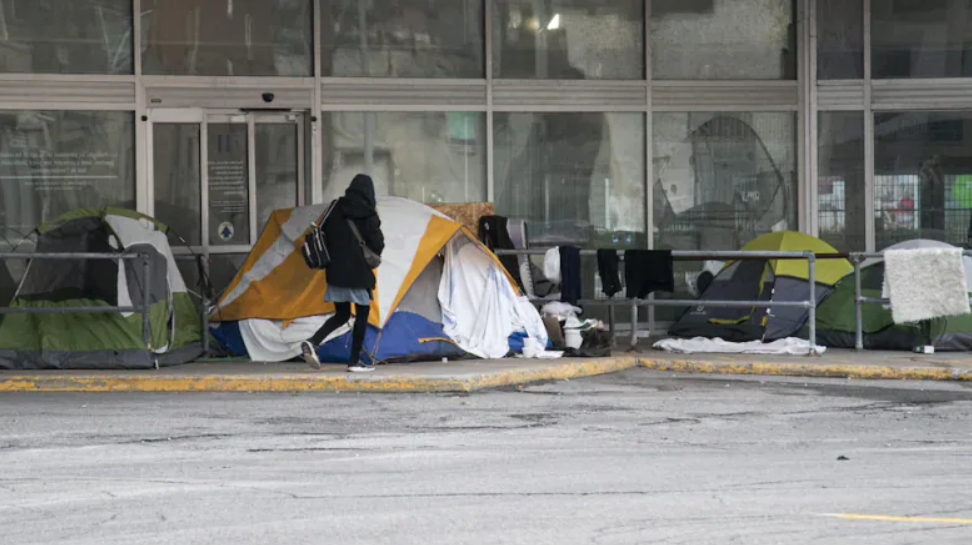More than 3,000 people remain without a home this winter despite years of tireless advocacy from community organizations around Montreal. Almost half of Montreal’s unhoused population is Inuit, reflecting Quebec’s ongoing settler-colonial project.
The city’s attempts at resolving the crisis remain inadequate and ineffective. In 2021, the city provided 1,550 emergency beds, created 10 new warming stations in different boroughs, and launched a program giving housing access to 200 people. Despite these efforts, houseless people in Montreal continue to tragically freeze to death. The city’s solutions seem to be nothing more than a ‘one step forward, two steps back’ plan, as the 14 shelters opened during the pandemic were reduced to three in the past year, compounding the shortage of emergency measures when there are no long-term ones in place. Although the provincial government has launched a $280 million investment plan for the next five years, this is not nearly an urgent enough measure to resolve Montreal’s long-lasting houselessness problem and shows that the city does not prioritize remedying it.
A deeper dive into Montreal’s fiscal policy indicates that houselessness is not the city’s top priority. Mayor Plante’s $125,000,000 investment to build “the biggest park in Canada” as part of her “green deal” is not nearly as pressing as the houselessness issue, and it would take less than a quarter of that amount to provide permanent housing for those on the streets. Beyond this, the major increase of the Montreal police department’s budget to a total $787 million for 2023 ($63 million more than in 2022) is an absurdly unnecessary and ignorant allocation of taxpayer money. These funds, reserved for hiring more police officers, represent roughly 14 times more than what is invested in the city’s five-year plan to fight houselessness.
The city still engages in the brutal practice of evictions, such as the one planned for Nov. 10 near the Ville-Marie Expressway. The eviction was eventually delayed after dozens of protestors marched in solidarity, but the project is still ongoing and will displace an entire camp with nowhere else to go, to supposedly offer them better alternatives.
Though there are initiatives that offer short-term essentials for people in need, they cannot provide solutions for long-term structural problems. Mobilizing For Milton-Parc, a student-run organization that provides essential food and supplies, and the “Leave a coat” project in the Rosemont borough, are both examples of positive community-based approaches. Although these are important initiatives, they work to address the consequences of houselessness but cannot address the root causes of housing insecurity. The municipal government is failing at long-term initiatives and instead relies on band-aid measures. Meanwhile, community-based shelters, such as Resilience Montreal, stand alone by offering unfaltering life-saving services without sufficient government support.
To bring the crisis to an end, the city must implement long-term programs such as affordable or transitional housing and harm reduction which will keep people in precarious situations safe this winter. If the municipal government truly cared about people experiencing houselessness, then they would divert funding to the social programs necessary to combat the systems that leave the city’s most vulnerable behind.
The provincial and municipal governments must stop making excuses and finally take thoughtful action for its unhoused population, instead of subjecting them to violence. The burden of solving this crisis cannot continue to fall on the shoulders of community organizers and rather should fall on those of a provincial government that has more than enough resources to execute viable solutions. Unhoused populations need effective long-term support from the provincial and municipal leadership because coats may keep people warm for now, but they won’t provide the structural change necessary to save lives.








